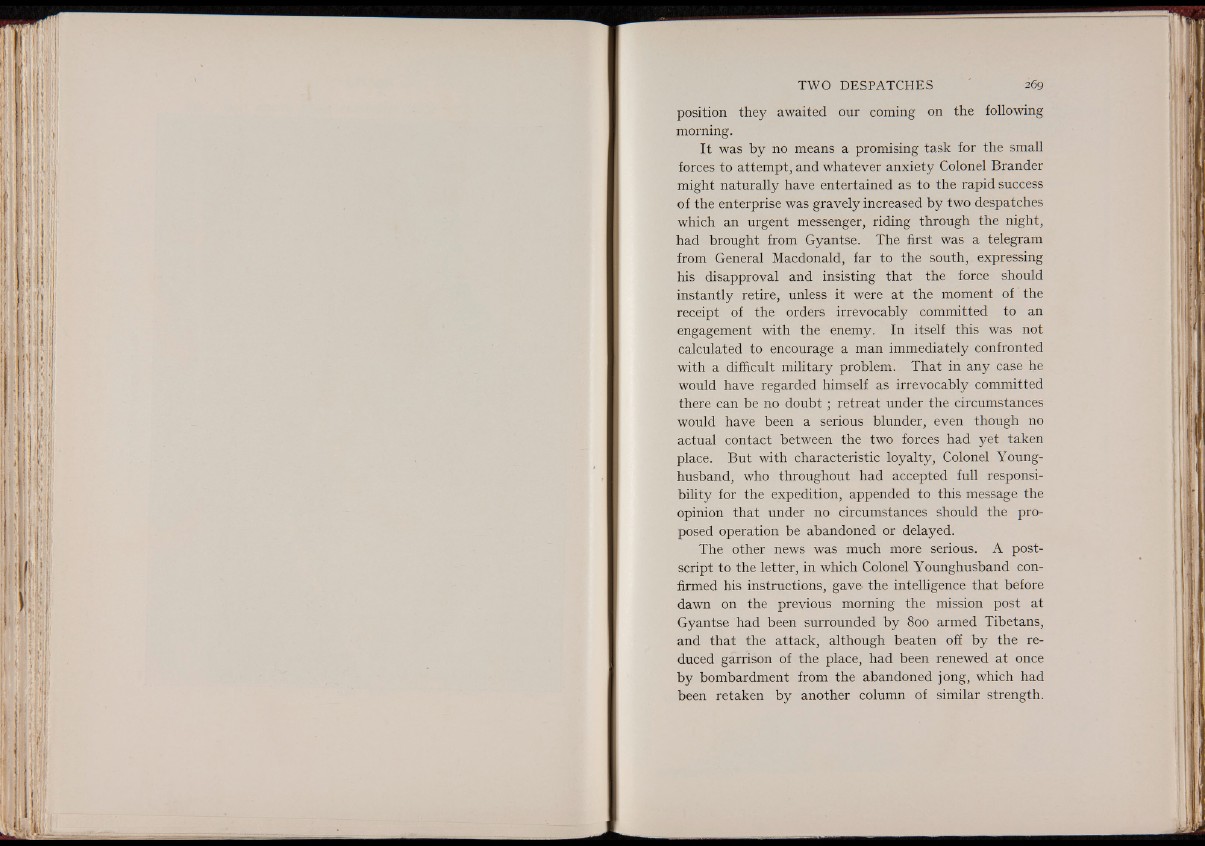
i i i
H.l, !| V
fl v
I
II I 5|s
l i l t !
I PH
ill I
H i
( i f
1 1 1 I
¡(« (ill
I.
« I f i i i ill i IX] ■§ ] | iifill IlU t ffifi
i I 1
1 i
1 : 1
f c l
TWO DESPATCHES 269
position they awaited our coming on the following
morning.
It was by no means a promising task for the small
forces to attempt, and whatever anxiety Colonel Brander
might naturally have entertained as to the rapid success
of the enterprise was gravely increased by two despatches
which an urgent messenger, riding through the night,
had brought from Gyantse. The first was a telegram
from General Macdonald, far to the south, expressing
his disapproval and insisting that the force should
instantly retire, unless it were at the moment of the
receipt of the orders irrevocably committed to an
engagement with the enemy. In itself this was not
calculated to encourage a man immediately confronted
with a difficult military problem. That in any case he
would have regarded himself as irrevocably committed
there can be no doubt; retreat under the circumstances
would have been a serious blunder, even though no
actual contact between the two forces had yet taken
place. But with characteristic loyalty, Colonel Young-
husband, who throughout had accepted full responsibility
for the expedition, appended to this message the
opinion that under no circumstances should the proposed
operation be abandoned or delayed.
The other news was much more serious. A postscript
to the letter, in which Colonel Younghusband confirmed
his instructions, gave, the intelligence that before
dawn on the previous morning the mission post at
Gyantse had been surrounded by 800 armed Tibetans,
and that the attack, although beaten off by the reduced
garrison of the place, had been renewed at once
by bombardment from the abandoned jong, which had
been retaken by another column of similar strength.